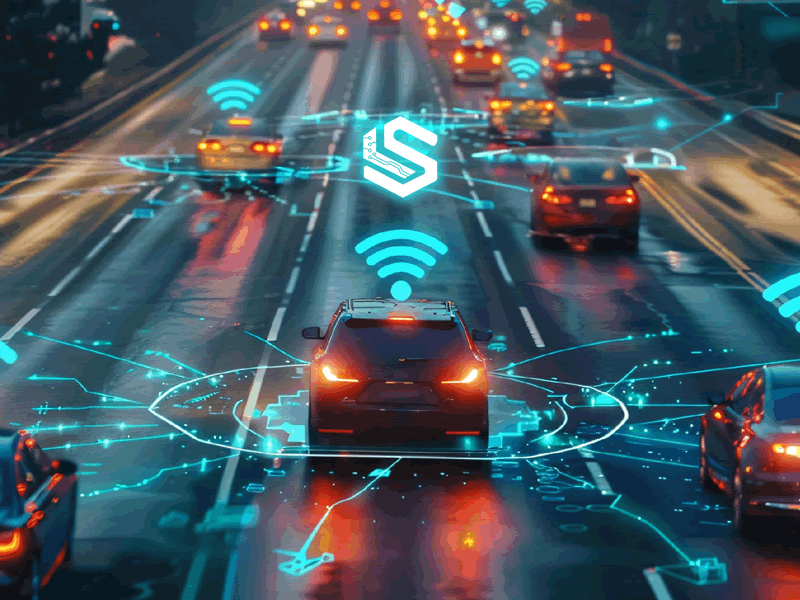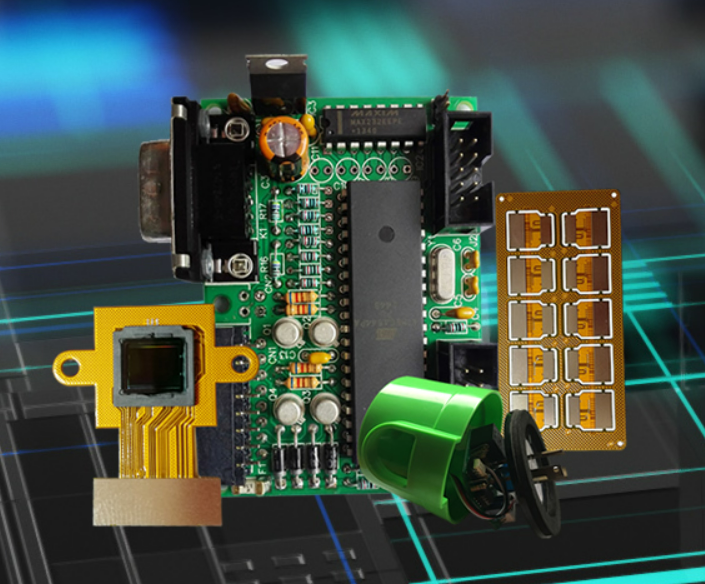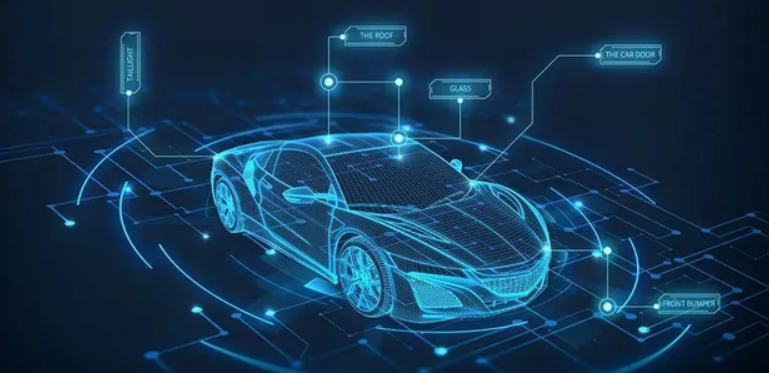With the continuous advancement of intelligent and automated technologies, smart cars are gradually becoming a part of our daily lives. From autonomous driving to vehicle connectivity, the various functions of smart cars rely on efficient and stable electronic components. Among them,
Flexible Printed Circuits (FPC)—a lightweight, flexible, and customizable electronic connection technology—are playing an increasingly important role in smart cars. This article explores the application of FPC in smart vehicles and analyzes how it helps improve vehicle
safety and
energy efficiency.
FPC: The Nervous System of Smart Cars
The interior of a smart car is filled with various sensors, controllers, and actuators, which are interconnected through a complex circuit system. These components work together to enable autonomous driving, intelligent navigation, and efficient energy management.
FPC, with its lightweight, flexible, and bendable properties, becomes the ideal choice for connecting these electronic components. It functions like the car's nervous system, tightly linking all parts together to ensure fast and accurate information transmission.
Autonomous Driving System
Autonomous driving systems require numerous sensors and cameras to perceive the surrounding environment, and the signal transmission and processing of these sensors depend on efficient circuit connections. FPC’s flexible nature allows it to be seamlessly integrated into complex in-vehicle systems, ensuring stable signal transmission without space limitations. For example, FPC can be used for the circuit connections of sensors such as radar, cameras, and LiDAR, enhancing the responsiveness and precision of the autonomous driving system.
In-Vehicle Electronics Systems
Modern smart cars are equipped with many high-tech features, such as onboard navigation, entertainment systems, and displays. These devices require highly integrated circuit boards. FPC, with its thinness and high density, can effectively save space while ensuring stable and efficient electrical connections. Additionally, FPC reduces the weight of traditional rigid circuit boards, improving the overall energy efficiency of the vehicle.
Vehicle Connectivity and Communication Systems
Vehicle-to-everything (V2X) technology allows smart cars to communicate with external devices, providing real-time navigation, entertainment, and remote control features. FPC is widely used in vehicle communication modules to support high-frequency, high-speed signal transmission, ensuring real-time and accurate data exchange. For example, in in-car Wi-Fi, Bluetooth, and 5G communication modules, FPC provides stable signal transmission, improving the reliability of in-vehicle communication.
FPC: Enhancing Safety – Precise Perception, Rapid Response
Enhancing Autonomous Driving System Response Speed
Autonomous driving systems require extremely fast response times. FPC plays a critical role in sensor connections. Compared to traditional rigid circuit boards, FPC’s signal transmission is more stable and faster, enabling data exchange at the millisecond level. This enhances the system’s ability to perceive and respond to the surrounding environment, improving driving safety.
Improving Sensor Precision
Sensors such as radar, LiDAR, and cameras used in smart cars have very high signal transmission demands. FPC offers high-density, low-loss signal transmission, ensuring the precise delivery of sensor data. This is crucial for accurate positioning, obstacle detection, and accident prevention in autonomous driving, helping the vehicle navigate safely in complex road conditions.
Reducing Electromagnetic Interference
Electromagnetic interference (EMI) can affect key vehicle safety systems such as the braking and power systems. FPC’s multilayer structure and high-frequency characteristics help reduce EMI, ensuring the stable operation of electronic systems, which in turn enhances the safety of the smart car.
FPC: Optimizing Energy Efficiency – Intelligent Management for Green Mobility
Reducing Vehicle Weight
FPC’s flexible and lightweight properties make it an ideal material for circuit connections. Compared to traditional rigid circuit boards, FPC significantly reduces the weight of the vehicle's electrical system. Reducing the overall weight not only enhances vehicle handling but also reduces energy consumption, improving fuel efficiency or extending the electric vehicle’s battery range.
Optimizing Power Management Systems
Modern smart cars are typically equipped with complex power management systems to optimize the control of the battery, electric motor, and energy recovery systems. FPC provides stable power transmission with high reliability, improving the efficiency of power management systems, reducing energy waste, and extending the vehicle’s range.
Supporting Efficient Heat Dissipation
In high-performance smart cars, heat dissipation is crucial to ensure the proper functioning of electronic devices. FPC’s excellent heat dissipation properties help reduce the operating temperature of in-vehicle electronics, preventing energy loss due to overheating and further improving the vehicle's overall energy efficiency.
Looking Ahead: Endless Innovation, Smart Mobility for the Future
As smart car technology continues to evolve, the application of FPC will become even more widespread and advanced. In the future, we can expect to see more innovative FPC applications, such as flexible displays and smart textiles, which will further enrich the interactive experience of smart vehicles and enhance their level of intelligence. At the same time, with ongoing breakthroughs in material science and manufacturing processes, the performance of FPC will continue to improve, contributing even more to the safety, energy efficiency, and sustainability of smart vehicles.
In conclusion, FPC is a crucial technology in the smart car industry, driving transformation in the automotive sector with its unique advantages. It not only enhances the safety and energy efficiency of vehicles but also opens up new possibilities for the future of intelligent transportation. Let us look forward to a future where, with the support of FPC, smart cars lead us toward a safer, more efficient, and greener mobility era. As a professional ISO9001 and IATF16949 certified automotive FPC manufacturer, Sienta is welcome to call us for sampling production.


